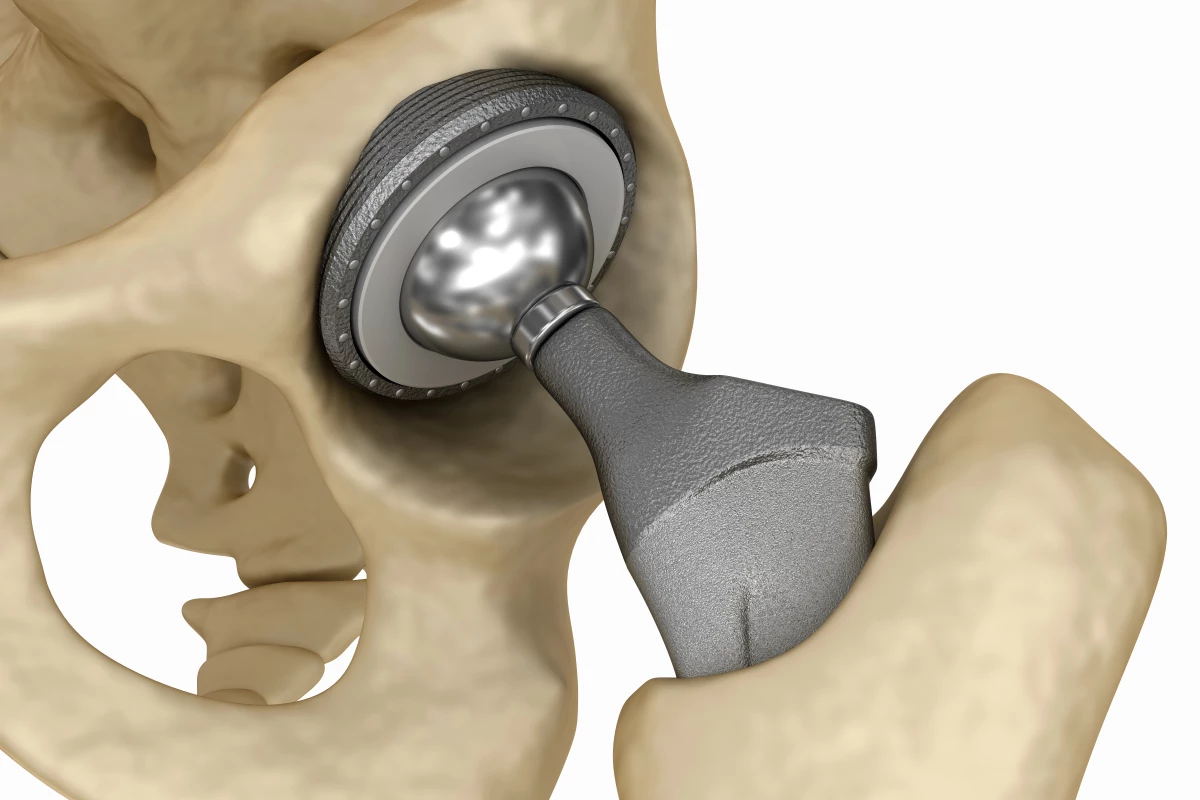While titanium hip and knee implants do restore mobility to a great many people, they're still subject to failure. A new alloy could help change that, simply by adding a smidge of bendy, bacteria-killing gallium to the mix.
Regardless of whether the implant replaces a hip or a knee, there's a distinct boundary where the titanium device meets the patient's natural bone tissue. If bacteria colonize the surface of the implant at that interface, an infection may occur that will ultimately cause the bone/implant connection to fail. Once that has happened, a second surgery will be required.
Another potential problem comes from the fact that the type of titanium most often used for implants, Ti-6Al-4V, is stiffer than bone. This means that the implant doesn't flex as much as the bone to which it's attached, concentrating stress at the interface between the two. Not only may this cause the connection to fail over time, it can also be a source of pain to the patient.
In an effort to address both of these problems, scientists from Australia's Flinders University recently added gallium (Ga) to Ti-6Al-4V. Not only is the metal known to possess antibacterial qualities, it's also more flexible than titanium (Ti).
The researchers only added a little bit of gallium, however. One of the Ti/Ga alloys they created just 3% gallium by weight, while the other was only 5%. For the purposes of the study, the samples took the form of rods, not implants.
When exposed to Pseudomonas aeruginosa bacteria (which frequently infects implants) the two new alloys were found to eradicate 90% (+/- 5%) and 95% (+/-3%) of the microbes respectively, over a six-hour period. By contrast, a control sample of Ti-6Al-4V titanium killed only 3% (+/-2%).
Importantly, the antibacterial effect of the two Ti/Ga alloys continued after the initial six-hour "killing spree," and no harmful effects to human cells were observed over a 24-hour period.
What's more, when the alloys were strength-tested, the 3% Ga version exhibited a Young's modulus that was 37% less than that of Ti-6Al-4V, while the 5% Ga version was 44% less. The Young's modulus is a measurement of how easy it is to bend a material.
That said, the two new alloys aren't weak. Their hardness, which is their ability to withstand surface deformation, falls just short of that of Ti-6Al-4V. Additional research could boost their hardness further.
"The alloys in this work have shown very promising results and are part of ongoing efforts to improve components in orthopedic implants," says Dr. Reza Hashemi, who led the study along with Materials Engineering graduate Rhianna McHendrie. "Compared to existing prostheses, the addition of gallium produces a superior material with antibacterial properties to improve patient outcomes while reducing potential pain, medical complications and long-term implant failure."
A paper on the study was recently published in the Journal of Functional Biomaterials.
Source: Flinders University





